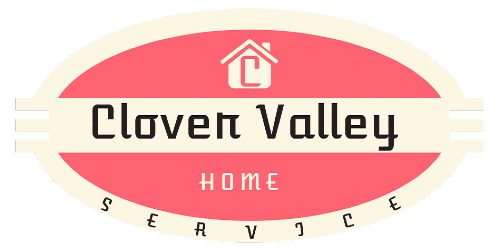The Pros and Cons of Various Window Types
Different window types offer unique advantages and challenges, and understanding them can help in selecting the most suitable option for a home or business.
Choosing the right type of window is a critical decision for any remodeling project. Different window types offer unique advantages and challenges, and understanding them can help in selecting the most suitable option for a home or business. Windows affect the aesthetics of a property and impact energy efficiency, maintenance requirements, and overall comfort. Consulting with a remodeling expert can provide valuable insights into the best choices for each specific project. Below are some of the most common window types and the pros and cons that go along with each.
Double-Hung Windows
Double-hung windows are a prevalent choice because of their versatility and ease of use. These windows include two operable sashes that slide vertically, allowing for improved ventilation. One of the primary benefits of double-hung windows is their practicality. The ability to open the upper and lower sashes provides better airflow and control over ventilation. Additionally, the design makes them easy to clean, as both sashes can tilt inward.
However, double-hung windows may not be the most energy-efficient option available. The sliding mechanism creates small gaps that can allow air to escape, leading to potential energy loss. Over time, the seals around the sashes may degrade, further reducing their energy efficiency. Routine maintenance is needed to keep them functioning properly and to prevent drafts.
Casement Windows
These types of windows, which are hinged on one side and open outward, offer excellent ventilation and energy efficiency. By opening fully, these windows allow maximum airflow, making them ideal for areas that require more ventilation. Casement windows feature tight seals, which can significantly reduce energy loss. The design of casement windows makes them a perfect option for achieving better energy efficiency in a property.
One drawback of casement windows is their vulnerability to strong winds, as the outward-opening design may make them more susceptible to damage during storms. Additionally, these windows can be difficult to clean, particularly in multi-story homes, due to the way they open outward. For properties in areas prone to high winds, careful consideration is needed before choosing casement windows.
Sliding Windows
Sliding windows are an ideal choice for homeowners looking for a simple, low-maintenance option. These windows consist of two horizontal sashes that slide along a track. Sliding windows are easy to operate and neeed minimal maintenance compared to other window types. The streamlined design also complements modern architectural styles, making them a prevalent choice for contemporary homes.
However, sliding windows may not provide the best insulation. The design does not allow for a seal that is as tight as a casement or fixed window, leading to possible energy loss. While they are easy to clean and operate, regular maintenance is necessary to prevent dirt and debris from accumulating in the tracks, which can affect their smooth operation over time.
Bay and Bow Windows
Bay and bow windows add a bit of elegance to any property, often serving as a focal point in living spaces. These window types extend outward from the structure, creating a small nook or ledge inside. Bay and bow windows offer a panoramic view of the outdoors, allowing natural light to enter the room. Additionally, they can increase the overall value of a property by enhancing both interior space and curb appeal.
The downside to bay and bow windows is the higher cost associated with their installation and maintenance. Due to their detailed design and larger size, these windows are more expensive to install than standard window types. Maintenance can also be more intensive, as the extended frames and multiple panels require more attention to keep them in good condition. For those willing to invest in aesthetic appeal and added space, bay and bow windows offer unmatched benefits.
Awning Windows
Awning windows, which feature hinges at the top and open outward, are well-suited for areas that need protection from rain while allowing ventilation. These windows are commonly used in bathrooms, kitchens, and areas where moisture is a problem. Awning windows provide good energy efficiency due to their design, which creates a tight seal when closed.
A potential disadvantage of awning windows is their limited size, which can restrict the amount of natural light they allow into a room. Additionally, like casement windows, their outward-opening design can be problematic in areas with strong winds. However, for rooms that require ventilation without sacrificing protection from the elements, awning windows remain a practical choice.
Fixed Windows
Fixed windows, also known as picture windows, are designed for areas where ventilation is not a priority, but natural light and an unobstructed view are desired. These windows do not open, making them highly energy-efficient and easy to maintain. Fixed windows are often utilized in living rooms, dining areas, or any space where a large, uninterrupted view of the outdoors is important.
The main limitation of fixed windows is the lack of ventilation. Because they do not open, these windows are not suitable for areas that require airflow. Additionally, their large size can sometimes contribute to heat gain in warmer climates, necessitating additional shading or tinting to maintain comfort inside the property.
Choosing the Best Window Type
Each window type offers unique benefits and drawbacks, making it important to consider the specific needs of a property before making a decision. Consulting with a remodeling expert can help determine the most suitable option based on factors such as energy efficiency, maintenance requirements, and aesthetic preferences. Whether the goal is to enhance a home’s appearance, improve ventilation, or increase energy savings, selecting the right window type is a key step in achieving a successful remodeling project.
Trust Clover Valley Home Services for professional painting - interior and exterior, sheetrock tape and texture work, dry rot and termite damage repair, and windows, sliders, and screens solutions in Greater Sacramento, Placer, & El Dorado Counties.

